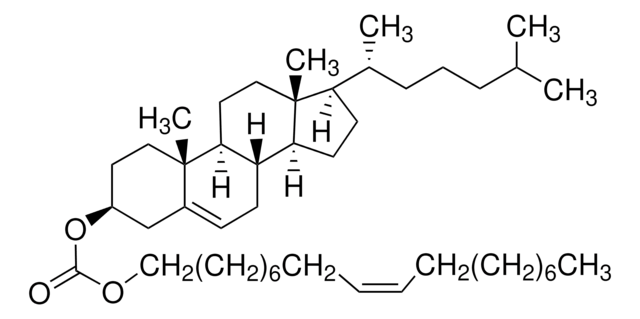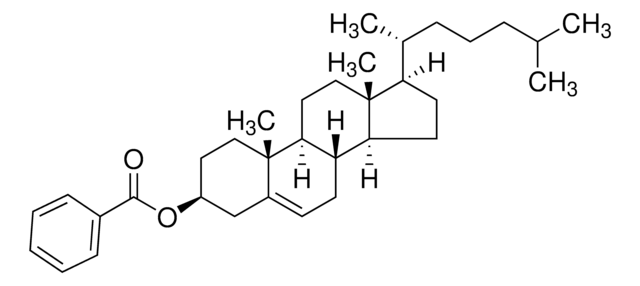328510
4′-Pentyl-4-biphenylcarbonitrile
liquid crystal (nematic), 98%
Synonym(s):
4-Cyano-4-pentylbiphenyl, 4-Pentyl-4-cyanobiphenyl, 5CB
About This Item
Recommended Products
Assay
98%
form
liquid crystal (nematic)
refractive index
n20/D 1.532 (lit.)
bp
140-150 °C/0.5 mmHg (lit.)
density
1.008 g/mL at 25 °C (lit.)
SMILES string
CCCCCc1ccc(cc1)-c2ccc(cc2)C#N
InChI
1S/C18H19N/c1-2-3-4-5-15-6-10-17(11-7-15)18-12-8-16(14-19)9-13-18/h6-13H,2-5H2,1H3
InChI key
HHPCNRKYVYWYAU-UHFFFAOYSA-N
General description
Application
Signal Word
Warning
Hazard Statements
Precautionary Statements
Hazard Classifications
Skin Sens. 1
Storage Class Code
10 - Combustible liquids
WGK
WGK 3
Personal Protective Equipment
Certificates of Analysis (COA)
Search for Certificates of Analysis (COA) by entering the products Lot/Batch Number. Lot and Batch Numbers can be found on a product’s label following the words ‘Lot’ or ‘Batch’.
Already Own This Product?
Find documentation for the products that you have recently purchased in the Document Library.
Our team of scientists has experience in all areas of research including Life Science, Material Science, Chemical Synthesis, Chromatography, Analytical and many others.
Contact Technical Service









